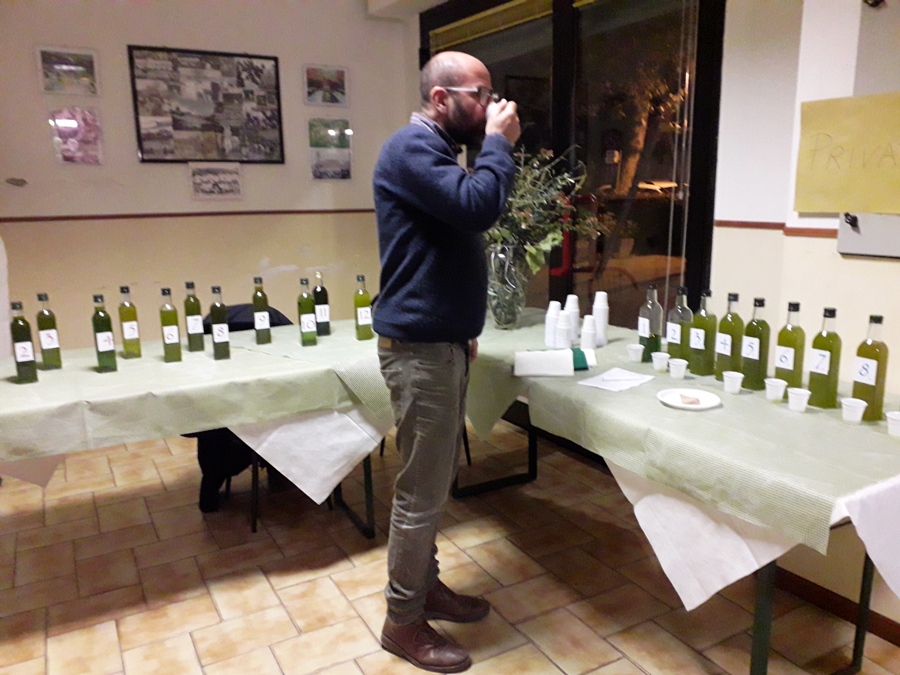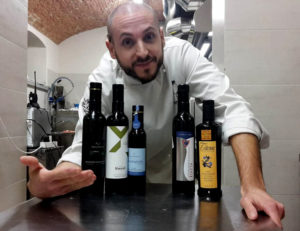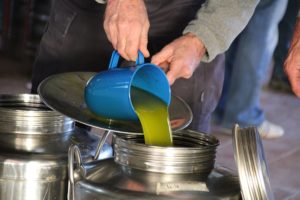Articolo disponibile anche in: Italian
We’ve asked our readers if they prefer their olive oil to be filtered or unfiltered: 66% of the 350 people who have taken part in the survey said they prefer it unfiltered.
These results weren’t actually much of a surprise, and we’d like to know the opinion of two olive oil experts from the Chianti region.
Matteo Mugelli (Azienda Agricola Torre Bianca, AIRO) and Filippo Legnaioli (Frantoio del Grevepesa olive-press) have been asked to answer three questions on this subject.
Their view is that the majority of people are wrong in choosing unfiltered olive oil.
QUESTIONS
1) What do the results of this survey tell us?
2) In your opinion what are the reasons?
3) What should the consumer, and the small olive oil producer know on the subject?

MATTEO MUGELLI
MATTEO MUGELLI
1 ) “The result of the survey is the worrying sign that in Italy everyone thinks they know a lot about extra virgin olive oil (most people know someone who produces it), but in reality people are ignorant on this subject. The extra virgin olive oil must be filtered to last over time. The filtering process eliminates any residual sediments like pulp or skin. The sediments would inevitably lead to fermentation and oxidation, drastically decreasing the life span of the olive oil, and in most cases resulting in a real flaw in the product”.
2) “The reason is identical to that which make people care more about the olive oil yield than its quality. Sometimes it feels like a competition to see who has achieved the highest yield. And then after a short time the producers complain with the olive-press that the oil has turned yellow, it’s lost all the spiciness and turned bitter”.
3) “The consumer should know the olive oil before buying it; after all it’s one of the main products of our land! We pride ourselves on having the best extra virgin olive oil, but then we fail to recognize the flaws in the product. I’ve founded AIRO (International Association of Olive Oil Restaurants), together with my sister Marta and Filippo Falugiani. We organise successful olive oil tasting courses in Florence and Milan, in which technicians and restaurateurs take part, but also many people who are simply interested in understanding what’s hidden behind this great product”.

FILIPPO LEGNAIOLI
FILIPPO LEGNAIOLI
1) “These results don’t surprise me. Olive oil production has always been linked to its long tradition. That’s why the resistances to innovations (like the filtering process), despite scientific evidence confirm that the filtering process is vital to ensure greater stability to the olive oil and its longer duration”.
2) “The reason is that the olive oil is an agricultural product which is strongly linked to tradition”.
3) “The filtering process frees the olive oil from those impurities that affect its quality over time. During this process, micro drops of residual water, mucilaginous substances and microscopic solid fragments get separated. With time these substances would otherwise settle and give an unpleasant smell and taste to the olive oil (hints of sludge or vinegar)”.
Matteo Pucci


